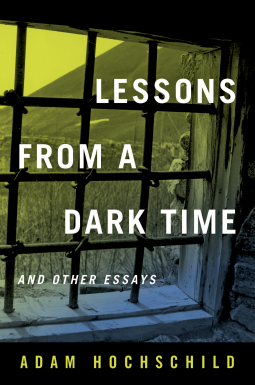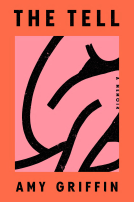
Lessons from a Dark Time and Other Essays
by Adam Hochschild
This title was previously available on NetGalley and is now archived.
Send NetGalley books directly to your Kindle or Kindle app
1
To read on a Kindle or Kindle app, please add kindle@netgalley.com as an approved email address to receive files in your Amazon account. Click here for step-by-step instructions.
2
Also find your Kindle email address within your Amazon account, and enter it here.
Pub Date Oct 12 2018 | Archive Date Jan 29 2019
Talking about this book? Use #LessonsFromAdarkTimeAndOtherEssays #NetGalley. More hashtag tips!
Description
With the skills of a journalist, the knowledge of a historian, and the heart of an activist, Hochschild shares the stories of people who took a stand against despotism, spoke out against unjust wars and government surveillance, and dared to dream of a better and more just world.
Adam Hochschild is a journalist and author who has written on issues of human rights and social justice. His books include the bestselling King Leopold’s Ghost. He has been a finalist twice for the National Book Critics Circle Award and once for the National Book Award. He has been awarded the Los Angeles Times Book Prize and is a two-time recipient of the Gold Medal of the California Book Awards.
Advance Praise
“Adam Hochschild’s brilliant and sprawling books on inhumanity and injustice have made him an international treasure. Now, with Lessons from a Dark Time, we have Hochschild in more bite-sized (well, meal-sized) form. His journalism ranges widely, literally around the world, but it’s always written with the same careful craft and indignant eloquence that we’ve come to admire so much.”—Jeffrey Toobin, author of American Heiress; staff writer, New Yorker; and chief legal analyst, CNN
“This book reveals Adam Hochschild’s journalism in all its glory. His facts are like jewels, luminous in their importance. As a reporter and historian, he turns facts into stories so dynamic and vivid that I couldn’t put the book down. This is important work by a gifted writer at the top of his game.”—Elizabeth Farnsworth, author, filmmaker, former chief correspondent, PBS NewsHour
“Lessons From a Dark Time is an elegant collection that showcases all of Adam Hochschild’s singular talents as a master essayist, historian, literary critic, and narrative writer. In search of a fair and humane world, he tackles big issues of social injustice by focusing on particular people, giving us their lives and travails with the grace and nuance of a wise storyteller. These pieces are special and enduring—a chronicle of our time, past and present, told always on an intimate human scale.”—Barry Siegel, Pulitzer Prize winner; Director, Literary Journalism Program, University of California, Irvine
“One wanders through this collection like the proverbial kid in a candy store. All the essential issues of our time are here, from colonialism to surveillance to development to McCarthyism to the life of the revolutionary, all shaped brilliantly into unforgettable stories, all brightly illuminated by Hochschild's bracing intelligence and sparkling prose. Start at Kerala or the Congo and finish in Catalonia or Berkeley. Dip in here and there, or read straight from first page to last. Whatever path you take, Lessons from a Dark Time is a delightful, vital book.”—Mark Danner, author of Spiral: Trapped in the Forever War
“These timely, trenchant essays offer a concentrated sample of Adam Hochschild's unique gift for illuminating the history of present-day moral conflicts. Their range is amazing, from the Congo to Siberia to Berkeley, but they are united by Hochschild's wry, compassionate sensibility and voice.”—Robert Worth, author of A Rage for Order: The Middle East in Turmoil, from Tahrir Square to ISIS
Available Editions
| EDITION | Hardcover |
| ISBN | 9780520297241 |
| PRICE | $27.95 (USD) |
| PAGES | 303 |
Featured Reviews
 Reviewer 201788
Reviewer 201788
When times are dark, we need moral ancestors, and I hope the pieces here will be reminders that others have fought and won battles against injustice in the past, including some against racism, anti-immigrant hysteria, and more. The Trumps and Putins of those eras have gotten the ignominy they deserve.
Author, journalist, public historian and writer of several much-beloved historical nonfiction titles Adam Hochschild released this compilation of previously published essays in response to the Trump presidency. The above quote, from the introduction, sets the scene for what to expect in these selections. There's a light at the end of the tunnel, and guiding the way there have always been brave, dedicated, principled and heroic figures who have stood up to power, oppression and discrimination. Hope resonates throughout.
He uses his historical writing and journalistic experience, including a campaign trip with Nelson Mandela, to relate what he's learned, and what contemporary history can teach us, about persistence, resilience, and action in the face of tyranny. Structured geographically, he begins with the "surveillance state", moves through coverage of situations and stories from Africa, India, Europe and America before ending with "the continent of words" - pieces focused on the importance of stories and power of words.
In addition to well known examples like Mandela, Hochschild highlights others who aren't household names. In "The Listening House", he profiles the life and work of Rebecca Masika Katsuva, a rape survivor in the Democratic Republic of Congo who runs a house providing aid to the thousands of women raped in the course of the civil war. It's a harrowing, haunting piece, but incredibly powerful.
And in "Our Night With its Stars Askew" he writes about the experience of author and Russian revolutionary Viktor Serge: "In the Soviet Union's first decade and a half, despite arrests, ostracism, theft of his manuscripts, and the near starvation he faced for a time, he bore witness."
Hochschild's writing contains political undercurrents even when that's not expressly the topic at hand - his books and reporting focus often on racism, imperialism and colonialism, and war among other heavy issues. So politics is always a thread running through it, but coupled with his attention to detail, which can be both brilliant and slowing, these feel quite heavy. I loved the message overall - it was inspiring and well taken, but I did find some of the pieces more difficult to wade through than others.
And it's not all expressly political, or even as heavy-handed as it may sound. I loved one essay, "Practicing History without a License", about his preferred niche of writing "popular" history - that is, history books to be read and understood by the general public instead of geared towards academics and historians. In addition to being a worthwhile endeavor (and judging by the popularity of his books like King Leopold's Ghost, a successful and appreciated one) he reveals a teensy pedantic streak after my own heart:
From time to time I get letters or emails telling me how much someone has enjoyed my novel. When I answer, I have to prune out the exclamation marks. "No!!!" I want to say. "There are more than eight hundred source notes! Look at the bibliography! I didn't invent anything!"
A pet peeve of mine too - a novel is fiction. Just because it tells a single story doesn't make it a novel. "Novel" is not a synonym for "book". "Nonfiction novel" gets tossed around thanks to Truman Capote and In Cold Blood and is one of those loosely defined genres so I'll have to let those be, but otherwise leave novels out of nonfiction. Rant over, but I fell a little in love with him here.
Also because of this, which now has me noticing how true this seems to be:
If historians wrote for the public only on subjects with a strong record of popular interest, 90 percent of all history books would be about the Founding Fathers, the Civil War, or the Second World War.
Looking just now at the selections available on the History Book Club website, I note a total of 166 volumes on the Big Three subjects, compared to a mere 19 for all of Africa and the Middle East.
...The torrent of books on the Big Three find so many readers because they are reassuring: the Founding Fathers were brilliantly farsighted; the Civil War was tragic, but the country reunited; the good guys of the Greatest Generation won the war against the Nazis.
Hochschild makes excellent arguments for examining history outside of popular, familiar boundaries and the lessons that can be mined from his writing and journalism underscore it brilliantly.
In "Prison Madness", while attending a book festival in Finland, he declined an invitation to visit medieval churches at the inviting publisher's suggestion, instead opting to visit local prisons. He was curious about Finland's comparatively liberal prison culture and the "dramatic gap" between incarceration rates compared with the US.
How did we get to the point where a nineteen-year-old who has done nothing violent can be put away for almost as long as he has lived, where prisons break up millions of families, and where we have a larger proportion of our people incarcerated than almost any other country in the world, even Putin's Russia?
A country with a lavish array of natural riches and a dysfunctional government is like a child heiress without a guardian: Everyone schemes for a piece of what she's got.
"Pilot on the Great River", about Mark Twain's nonfiction, was possibly my favorite. It showcases Hochschild's ability to contextualize bits of history with a modern twist:
Rambling from one corner of his life to another, free-associating, embroidering stories he had once written, mixing fanciful anecdotes, personal experience, and pungent opinions with news items and half-finished sketches, Twain's dictated eruptions most resemble a genre that would not be named for nearly another century: blog posts.
There's even a reminder that we've come through times of aggressive anti-immigrant sentiment and intolerance before:
In strikingly Trumpian fashion, Wilson himself helped sow suspicion of dissenters and hidden enemies. He had run for reelection in 1916 on the slogan "he kept us out war," but he was already quietly feeling out congressional leaders about joining the conflict, and he also knew American public opinion was strongly anti-German. Well before the declaration of war, he had ominously warned that "there are citizens of the United States, I blush to admit, born under other flags...who have poured the poison of disloyalty into the very arteries of our national life...Such creatures of passion, disloyalty, and anarchy must be crushed out."
There was a line in the Mark Twain piece that especially appealed based on my reading of this collection:
One word of warning for anyone picking up Life on the Mississippi for the first time: don't read the whole thing. Encountering many a work by Twain is like exploring a new city: some sights are to be savored, other neighborhoods skipped entirely.
As insightful, compelling and hopeful as I found the messages in these pieces, I didn't connect with every single one. Sometimes the writing felt dense, or the wealth of detail distracted instead of enhanced, or I just had a hard time grasping the topic. I did skim a bit here and there, but it seems like even Hochschild himself would understand.
A timely, deeply thoughtful and reflective look at bad times overcome. If not always the most readable, it bears a quiet message of hope and strength and their reassuring historical precedence.
Informative and insightful, Hochschild's collection of essays offers a cultural, political and historical look at several countries through a western perspective. While some of the essays are conversational and accessible, I found others slightly more challenging, but certainly rewarding, as well as thought provoking. Certainly made me reconsider any preconceived notions I may have had.
An interesting and worthy read.
This was an ARC in exchange for an honest review. With thanks to Netgalley and University of California Press.





